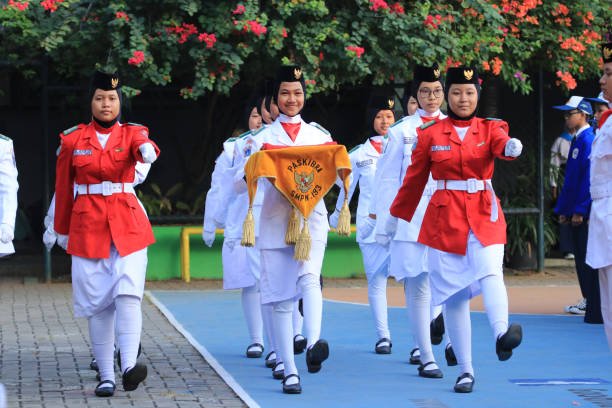Introduction
Have you ever wondered about the people who dedicate their time and energy to serve communities without expecting a dime in return? Welcome to the world of “Korps sukarela,” a term that resonates with commitment, altruism, and an undying spirit to help others. In a society increasingly focused on individual gain, Korps sukarela members stand as beacons of volunteerism, demonstrating that genuine service transcends personal benefit.
In this comprehensive guide, we’ll dive deep into what Korps is, its historical significance, the roles its members play, and how anyone can become part of this remarkable movement. Buckle up because this journey promises to be as enlightening as it is inspiring!
What is Korps Sukarela?
Korps sukarela, often abbreviated as KSR, translates literally to “voluntary corps.” These are organized groups of volunteers committed to providing various forms of community service. From disaster response to health campaigns, Korps sukarela members embody the spirit of selflessness, often putting the needs of others above their own.
Origins and Historical Background
The concept of Korps sukarela emerged in the mid-20th century as a response to societal needs that governmental institutions couldn’t fully address. Initially, it focused on civil defense and emergency response, but over time, its scope expanded to include health services, environmental protection, and educational support.
Core Principles
Korps sukarela operates under several guiding principles:
- Voluntary Service: Members join willingly, driven by the desire to help.
- Community Focus: Every activity prioritizes the welfare of society.
- Discipline and Training: Volunteers are trained rigorously to handle emergencies and community initiatives effectively.
- Ethical Standards: Integrity, respect, and empathy are non-negotiable values.
The Roles of Korps Sukarela Members
The versatility of Korps sukarela is one of its most impressive features. Here’s a breakdown of the roles volunteers typically assume:
Emergency Response
When disasters strike, KSR members are often the first on the scene. Whether it’s floods, earthquakes, or fires, these volunteers coordinate relief efforts, provide first aid, and assist in evacuation procedures.
Health and Welfare Services
Korps sukarela actively participates in health campaigns, including blood donation drives, vaccination programs, and public health education. They bridge the gap between medical institutions and communities, ensuring that essential services reach those in need.
Educational Outreach
Many KSR units focus on literacy and educational support, tutoring children, organizing workshops, and spreading awareness on important societal issues like hygiene, nutrition, and environmental conservation.
Environmental Conservation
From tree planting to clean-up drives, Korps sukarela members actively engage in protecting and preserving natural resources. Their efforts help communities stay resilient against environmental challenges.
How to Join Korps Sukarela
Joining Korps sukarela isn’t just about signing up; it’s a commitment to making a real difference. Here’s a step-by-step guide to get started:
- Research Local Chapters: Identify KSR units in your area.
- Attend Orientation: Participate in introductory sessions to understand the corps’ values and responsibilities.
- Undergo Training: Training programs vary from basic first aid to advanced emergency response.
- Participate in Activities: Start small by joining community service projects.
- Commit Long-Term: The more actively you participate, the greater your impact.
Skills and Qualities Needed
- Empathy: Understanding and connecting with people in need.
- Resilience: Handling stressful situations with calm and focus.
- Teamwork: Collaborating effectively with other volunteers.
- Adaptability: Being prepared for unexpected challenges.
- Communication: Clear and compassionate communication is crucial.
Benefits of Being Part of Korps Sukarela
While volunteering is inherently altruistic, members also enjoy personal and professional growth:
- Skill Development: First aid, leadership, problem-solving, and teamwork.
- Networking: Connect with like-minded individuals and professionals.
- Personal Fulfillment: The joy of making a tangible difference in society.
- Career Opportunities: Experience in KSR can enhance resumes, especially in healthcare, education, and emergency services.
Frequently Asked Questions (FAQs)
Q: Is Korps sukarela only for young people?
A: Not at all! KSR welcomes volunteers of all ages who can contribute meaningfully to community service.
Q: Do I need prior experience to join?
A: No prior experience is required. KSR provides comprehensive training to all new volunteers.
Q: Can I participate part-time?
A: Absolutely! Many volunteers engage in KSR activities alongside their regular jobs or studies.
Q: Are there any costs involved?
A: Generally, volunteering in KSR is free, though some specialized training programs might have minimal fees.
Q: How does KSR differ from other volunteer organizations?
A: KSR is unique because it combines voluntary service with structured training, emphasizing emergency preparedness and community welfare.
Stories of Inspiration from Korps Sukarela
The impact of Korps sukarela can be measured not just in statistics but in heartwarming stories:
- Rescue Missions: During floods in rural regions, KSR volunteers braved strong currents to rescue stranded families.
- Health Campaigns: In remote villages, volunteers organized vaccination drives reaching hundreds of children who otherwise lacked medical care.
- Educational Support: KSR members have tutored underprivileged children, helping them pass critical exams and secure scholarships.
These stories remind us that ordinary people, driven by extraordinary commitment, can transform communities.
Challenges Faced by Korps Sukarela
While the work is rewarding, KSR volunteers face certain hurdles:
- Resource Constraints: Limited funding and supplies can hinder operations.
- High Demands: Emergencies require quick responses and can be physically and emotionally taxing.
- Public Awareness: Some communities are unaware of the services KSR offers, leading to underutilization.
Despite these challenges, the resilience and dedication of Korps sukarela members ensure that their mission continues unabated.
How to Support Korps Sukarela Without Joining
Even if you can’t volunteer full-time, there are ways to support KSR:
- Donations: Financial contributions help maintain equipment and resources.
- Awareness Campaigns: Spread the word about KSR activities in your community.
- Skill Sharing: Offer your professional expertise in areas like healthcare, teaching, or logistics.
- Event Participation: Attend KSR events to show support and help raise funds.
Conclusion
Korps sukarela embodies the essence of selfless service. It’s more than just volunteering; it’s a lifestyle that nurtures empathy, courage, and communal responsibility. Whether you’re a student, professional, or retiree, there’s a place for you in this extraordinary movement. By joining or supporting KSR, you’re not just helping others—you’re becoming part of a legacy of compassion and resilience.
So, are you ready to make a difference? Step into the world of Korps sukarela and discover the transformative power of giving your time and heart to the greater good!









Leave a Reply